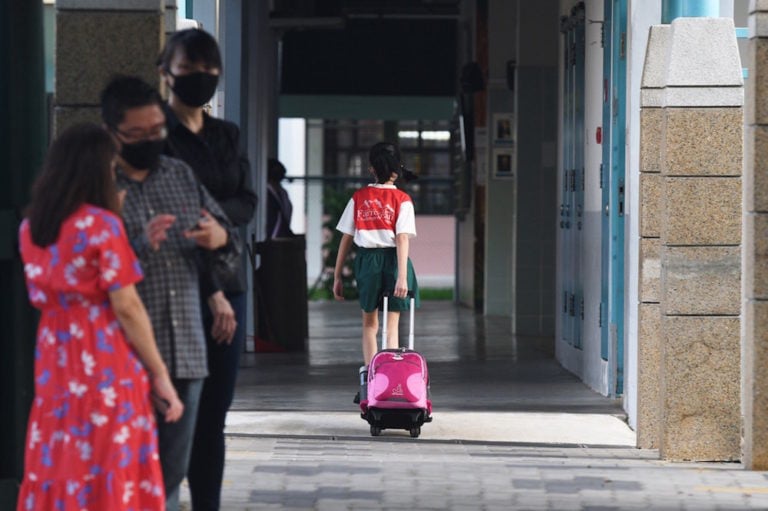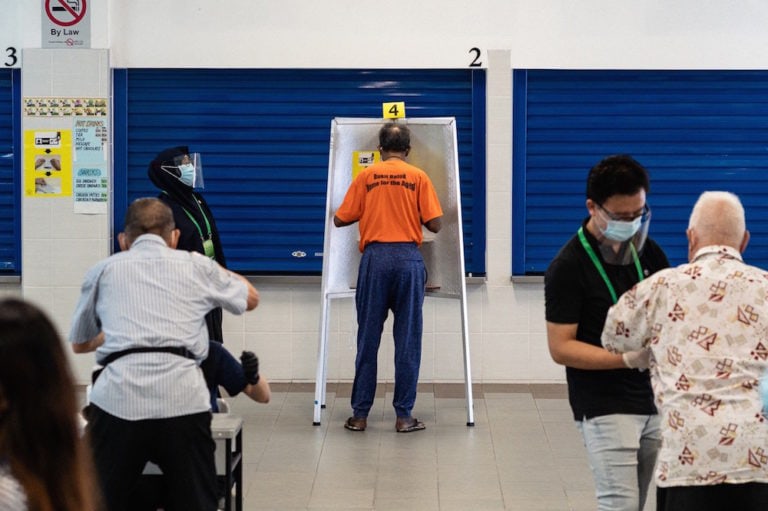(RSF/IFEX) – The following is an RSF open letter to Singaporean Prime Minister Lee Hsien Loong: Open letter to Prime Minister Lee Hsien Loong Prime Minister Lee Hsien Loong c/o The Embassy of Singapore 12 square de l’Avenue-Foch 75116 Paris Paris, 29 November 2005 Dear Prime Minister, Reporters Without Borders would like to take advantage […]
(RSF/IFEX) – The following is an RSF open letter to Singaporean Prime Minister Lee Hsien Loong:
Open letter to Prime Minister Lee Hsien Loong
Prime Minister Lee Hsien Loong
c/o The Embassy of Singapore
12 square de l’Avenue-Foch
75116 Paris
Paris, 29 November 2005
Dear Prime Minister,
Reporters Without Borders would like to take advantage of your visit to France to convey to you a number of concrete recommendations aimed at achieving a lasting improvement in the situation of press freedom in Singapore.
When foreign journalists recently asked Goh Chok Tong, your predecessor as prime minister and now senior minister in your cabinet, about Singapore’s position (140th out of 167 countries) in our 2005 World Press Freedom Index, he said it was a “subjective measure computed through the prism of Western liberals” and went on to defend Singapore’s control of the news media by arguing that “an unthinking press is not good for all countries.”
More than a year has passed since your administration’s installation and your statements in support of an “open” society, but we have not observed any significant improvement in the situation of press freedom.
We therefore believe that your government should take the follow measures as a matter of urgency:
1. Cease to systematically bring defamation actions against Singaporean and foreign news media that try to report Singaporean news freely (and ask your associates to also stop bringing such actions). It is unacceptable in a would-be democratic country that the head of government, his ministers and his associates assail journalists with lawsuits and thereby force them to adopt to self-censorship.
2. Amend Singapore’s criminal law in order to abolish prison sentences for press offences.
3. Amend the press law, especially those aspects concerning the allocation of licences to publish a newspaper, which prevents the emergence of independent news media.
4. Repeal the law on newspapers and publications and the law on films.
5. Amend the national security law by abolishing administrative detention which has in the past resulted in the imprisonment of journalists and human rights activists.
6. Amend the powers of the Media Development Authority so that it is no longer able to censor and can just make recommendations about television programmes and films.
7. Allow members of the political opposition and civil society representatives free access to the public news media.
8. Guarantee the editorial independence of all the news media owned by Singapore Press Holdings (SPH) and Media Corporation of Singapore (Mediacorp).
9. Repeal the law that requires religious and political website moderators to have a licence, as well as certain articles on the malicious use of computer technology which permits the surveillance and arrest of Internet users.
10. Rescind the requirement of prior permission to hold external news conferences.
The Reporters Without Borders index which you and your closest associates have publicly questioned measures the state of press freedom throughout the world. It reflects the level of freedom enjoyed by journalists and news media in each country and the efforts undertaken by governments to respect and ensure respect for this freedom.
We stand by our position that this world press freedom ranking, in which Singapore’s position has remained virtually unchanged, is based on hard facts and not on subjective interpretation.
In recent months, for example, we have seen police harassment of documentary filmmaker Martyn See and threats of lawsuits against the business news website FinanceAsia.com.
We regret that you, members of your government and your father, the former prime minister, continue to argue that control of the media and the maintenance of draconian legislation are necessary to ensure Singapore’s stability. We would like point out that countries such as Denmark and Finland that most respect press freedom are peaceful democracies. Free expression is not a source of political unrest, quite the contrary.
Mr. Prime Minister, there are simple measures that can be taken to encourage both economic development and free expression at the same time. Do not miss this chance to turn Singapore into a prosperous and free country.
We also seize this opportunity to again draw your attention to the situation of Ching Cheong, the Hong Kong-based correspondent of the Singaporean daily The Straits Times, who has been in prison in China for more than six months. We urge you to redouble your efforts to obtain his release as soon as possible.
We would be very honoured to be able to meet you in order to give you a personal presentation of our comments and proposals for ensuring press freedom in Singapore.
Yours sincerely,
Robert Ménard
Secretary-General


